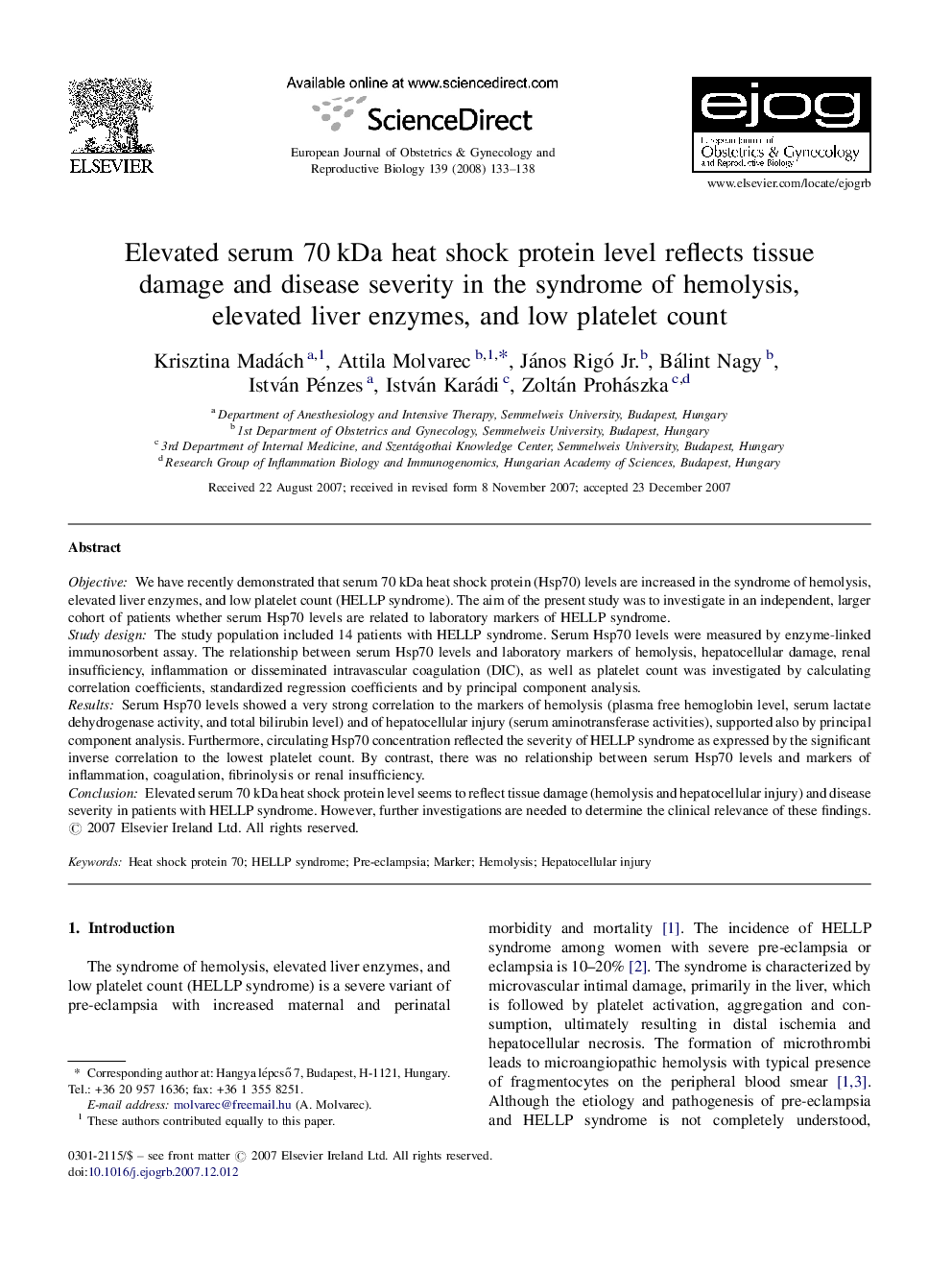| Article ID | Journal | Published Year | Pages | File Type |
|---|---|---|---|---|
| 3922196 | European Journal of Obstetrics & Gynecology and Reproductive Biology | 2008 | 6 Pages |
ObjectiveWe have recently demonstrated that serum 70 kDa heat shock protein (Hsp70) levels are increased in the syndrome of hemolysis, elevated liver enzymes, and low platelet count (HELLP syndrome). The aim of the present study was to investigate in an independent, larger cohort of patients whether serum Hsp70 levels are related to laboratory markers of HELLP syndrome.Study designThe study population included 14 patients with HELLP syndrome. Serum Hsp70 levels were measured by enzyme-linked immunosorbent assay. The relationship between serum Hsp70 levels and laboratory markers of hemolysis, hepatocellular damage, renal insufficiency, inflammation or disseminated intravascular coagulation (DIC), as well as platelet count was investigated by calculating correlation coefficients, standardized regression coefficients and by principal component analysis.ResultsSerum Hsp70 levels showed a very strong correlation to the markers of hemolysis (plasma free hemoglobin level, serum lactate dehydrogenase activity, and total bilirubin level) and of hepatocellular injury (serum aminotransferase activities), supported also by principal component analysis. Furthermore, circulating Hsp70 concentration reflected the severity of HELLP syndrome as expressed by the significant inverse correlation to the lowest platelet count. By contrast, there was no relationship between serum Hsp70 levels and markers of inflammation, coagulation, fibrinolysis or renal insufficiency.ConclusionElevated serum 70 kDa heat shock protein level seems to reflect tissue damage (hemolysis and hepatocellular injury) and disease severity in patients with HELLP syndrome. However, further investigations are needed to determine the clinical relevance of these findings.
